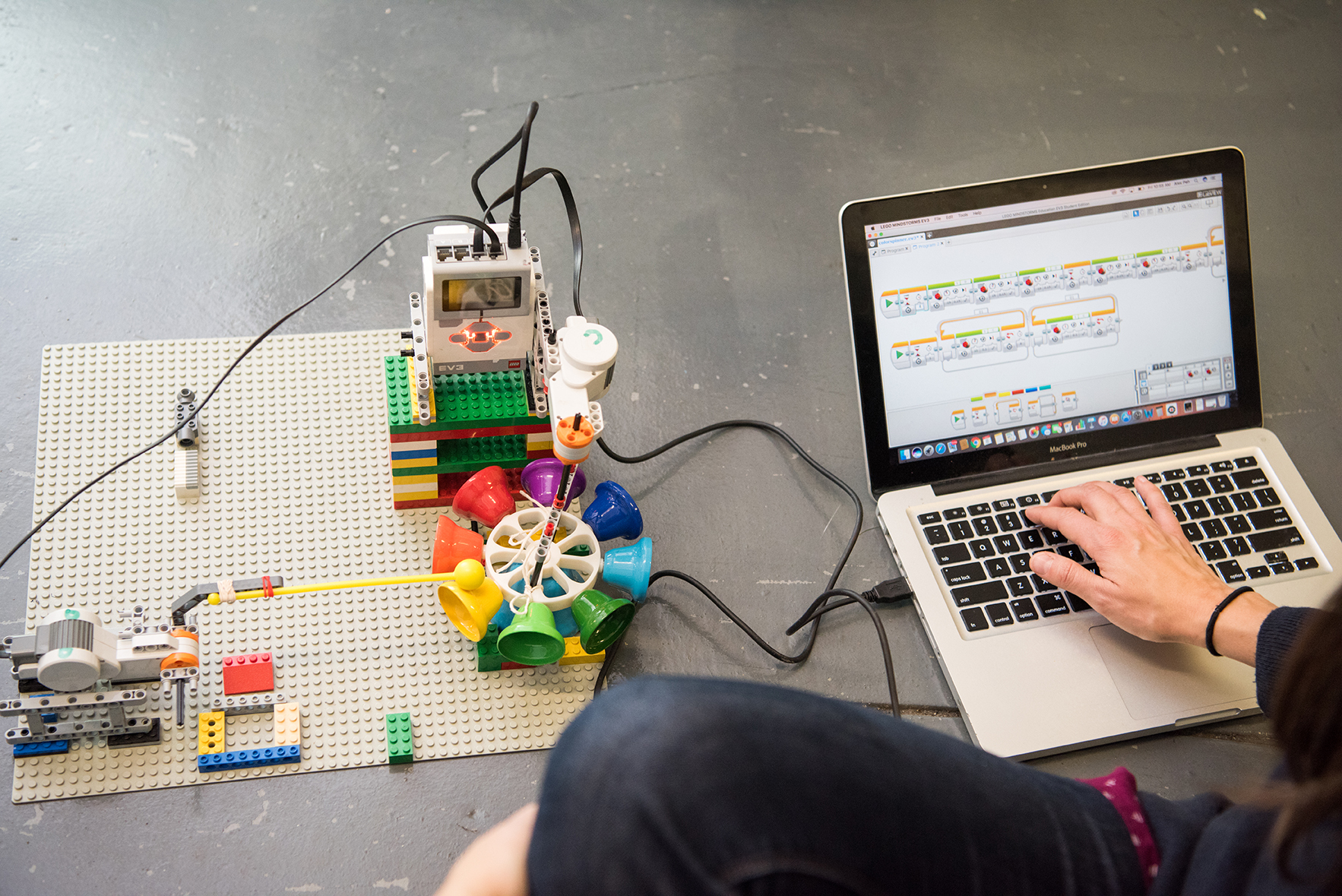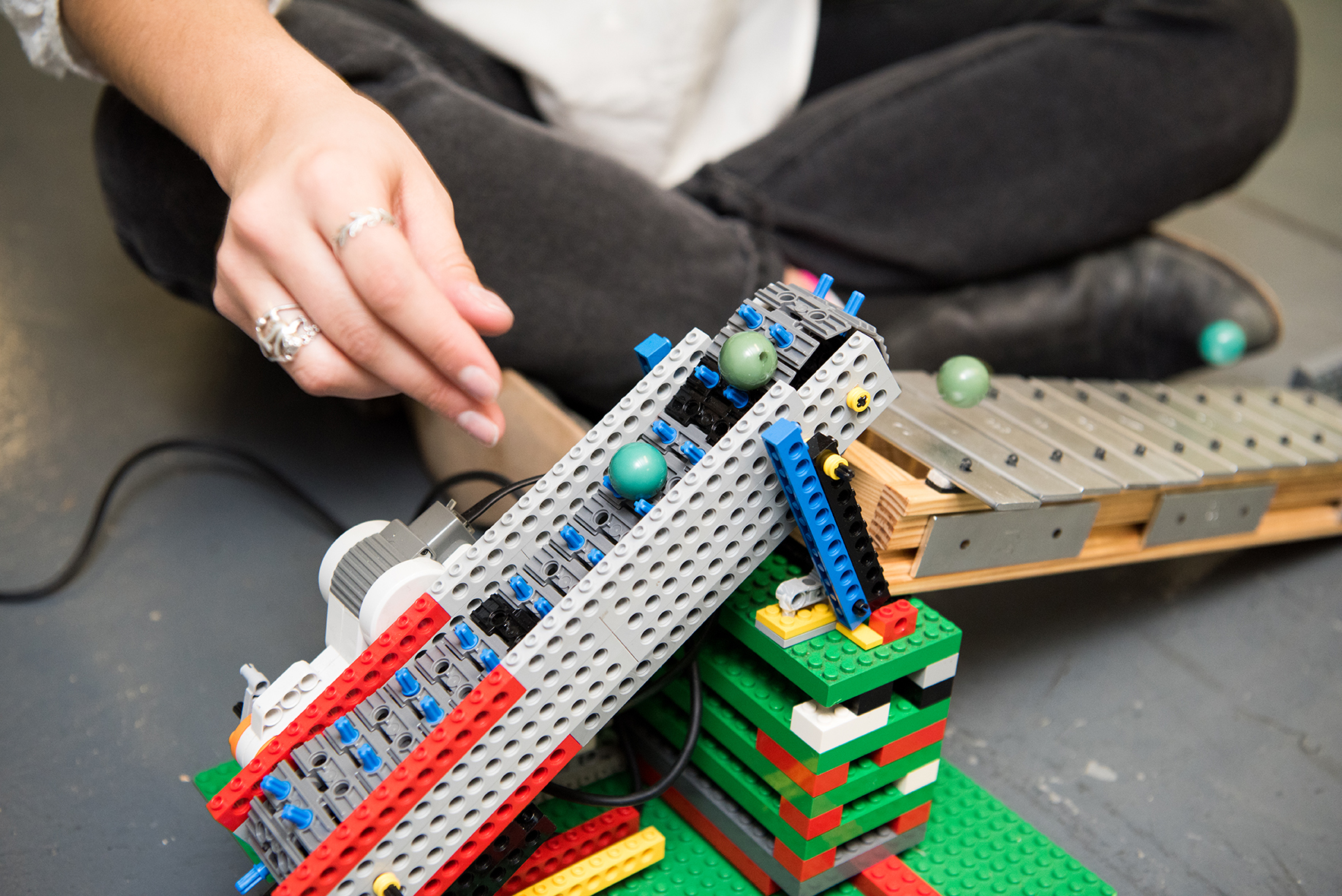Coding as composing: Music students work with robots to create a new kind of performance
Students in the Department of Music at SUNY New Paltz teamed with elementary school students at the Ethical Culture Fieldston School in Bronx, N.Y., to create dozens of original robotic music instruments, and are “teaching” them to swing, strike, spin, whir, crinkle, clap and create a host of other musical sounds as part of a new series of compositions.
The Experimental Music Ensemble – Steven Roberts ’18, Sam Johnson ’18, Elena Rothenberg ’18, Rose Stoller ’19, Matthew Parker ’18 and Serena Markinson ’18 – have been working with their favorite robots and the programming tools that power them.
“Every robot is different, so part of our rehearsal has been learning the quirks of each one,” said Roberts, the founder of the Experimental Music Ensemble. “You have to know exactly how each robot works, and how to arrange it to get the precise sound and rhythm you need.”
In the process, they’re playing with old and new ideas about how we create and arrange sound, and making profound discoveries about how we distinguish between musician and instrument in a digital age.
“I think we’re pushing the boundaries of what it means to perform,” Rothenberg said. “It might seem like we’re making ourselves as performers obsolete, but I don’t think that’s possible. The human element is still a huge part of the creation.”
Even for the faculty mentors involved in this project, working with robot instruments generated new epiphanies about the language of music.
“I’ve been thinking that music notation is a form of code – a map of linear, patterned directions for the performer,” said Assistant Professor Alex Peh, who coordinated this project. “Programming these instruments is a similar process of mapping out and organizing sounds, just translated into a totally different notation.”
 This experiment in amateur robotics exemplifies an atypical approach to collegiate education in music – interdisciplinary, forward-looking, and unafraid to try new things.
This experiment in amateur robotics exemplifies an atypical approach to collegiate education in music – interdisciplinary, forward-looking, and unafraid to try new things.
“To get a career going as a classical musician you have to be flexible,” said Assistant Professor Christiana Fortune Reader. “The students here who are doing experimental things like this are developing that flexibility, in a way that differentiates them from musicians with more traditional training.
“New Paltz has a lot to offer people who don’t want to fit into just one mold.”
The Ensemble brought this unique project to the public on Dec. 14, 2017, performing at Abrons Arts Center as part of the 2017 UnCaged Toy Piano Festival, before an audience that included many of their young collaborators from the Fieldston School.
It may have looked like their performance of “Opus Fun” involved little more than pressing a few buttons and letting the robots do the rest, but this was in fact the culmination of months of preparation, learning the personalities of their robot friends, and stands as a significant early-career accomplishment for six young musicians at a major festival and a world-class venue.
New Paltz community members have an opportunity to see an encore presentation of “Opus Fun” on May 5 at 1 p.m. at the Cronin Gallery in Water Street Market.
Learn more about the Department of Music at SUNY New Paltz online.

